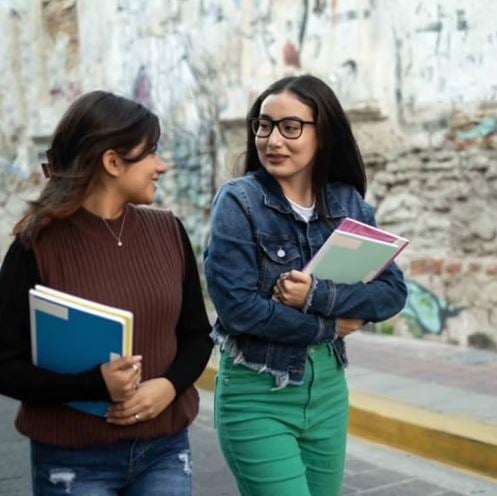-
Colleges
-
Scholarships
- Scholarships Find out how to get scholarship money for college that you don’t need to pay back.
- $2,000 No Essay Scholarship Enter to win our no-essay $2,000 college scholarship in 2 minutes or less.
- Scholly Scholarships Easily find and sort through thousands of college scholarships for free.
- Scholarships for High School Seniors Explore scholarships for high school seniors and get tips on how to apply.
- Scholly Easy Apply Scholarships Apply for up to $9,000 in scholarships each month with just one form.
- Scholarship Resources Explore our scholarship resources, articles, and guides.
-
Financial aid
- Financial Aid Grants, work-study, and federal student loans can all be part of your financial aid package.
- FAFSA® Guide Learn how to answer the 2026-27 FAFSA® questions like a pro.
- Financial Aid Offers Compare financial aid offers to determine the most affordable schools for you and your family.
- College Grants Learn more about federal and state grants and how to apply.
- Federal Pell Grants Discover what a Pell Grant is, who is eligible, and how to apply.
- Financial Aid Resources Get expert guidance on maximizing your financial aid options to make education more affordable.
-
Pay for School
- Sallie Mae® Student Loans
- Private Student Loans Find a private student loan designed to fit your needs.
- Undergrad Student Loan For college students earning a bachelor's or associate's degree.
- Graduate Student Loans Choose the right loan for your graduate degree or post-graduate studies.
- Career Training Loan For students taking professional training or certificate courses.
- Student Loan Resources Everything you need to navigate student loans with confidence.
How to get great letters of recommendation for college
Key takeaways about letters of recommendation
- Letters of recommendation give colleges a fuller picture of who you are.
- Ask trusted teachers, coaches, or mentors who know you well.
- Request letters early—at least a month before the deadline.
- Share helpful info like your resume and goals to guide your recommender.
- Avoid common mistakes like asking last minute or choosing someone who barely knows you.
What is a letter of recommendation for college?
It's a short but powerful statement written by someone who knows you well—like a teacher, counselor, or coach. It helps admissions officers see what kind of student, classmate, and community member you are beyond your GPA and test scores.
Enter to win a $2,000 scholarship*
No essay | Apply in 2 minutes or less
Colleges value these letters because they offer a personal perspective on your strengths, character, and potential. Think of them as real talk behind your application.
Who should I ask for a letter of recommendation?
Choose someone who:
- Knows you well and can speak to your growth
- Has seen you in action—like a teacher, coach, club advisor, or volunteer supervisor
- Can share specific examples of your work ethic, leadership, or impact
Pro tip: Don’t just pick the “fanciest” title. A glowing letter from your junior-year English teacher will go further than a generic one from the principal.
If a school requires more than one letter, mix it up—ask a teacher and a mentor from an extracurricular, for instance.
When should I ask for letters of recommendation?
Earlier is always better. Most students ask at the beginning of senior year—August or September—but it’s totally fine (and smart) to ask before summer break of junior year if you’re ready.
Some schools with early deadlines need letters by October or November. You’ll want to give your recommender at least 4 weeks notice to write something thoughtful—and not rushed.
How do I ask for letters of recommendation?
Be polite, be specific, and make it easy for them to say yes.
Ideally, you should ask in person or over video chat—especially if it’s someone you see regularly, like a teacher or counselor. It shows respect and gives your recommender a chance to ask follow-up questions. But if that isn't possible, a thoughtful email works too.
Here's how to ask:
- Lead with appreciation. Mention how much you’ve learned from them or how they’ve impacted your growth.
- Be clear and specific. Let them know what you’re asking for and when it’s due.
- Explain why you’re asking them. Tell them what you valued about their class, mentorship, or support.
- Offer helpful materials. Include your resume, a short brag sheet, and details on where and how to submit the letter.
- Give them a way to say no. Make it easy for them to decline gracefully if they’re overwhelmed or don’t feel they’re the best fit.
Sample email request for a recommendation letter:
Subject: Letter of recommendation request
Hi Ms. Ramirez,
I hope you’re doing well! I really enjoyed being in your AP U.S. History class last year—I learned so much, and I appreciated how you encouraged me to speak up more in class discussions.
I’m currently working on my college applications and would be honored if you would write me a letter of recommendation. I’m applying to several schools this fall, and your class really helped shape my interest in majoring in political science.
The first letter is due by October 15, and most of the others are due in early November. I’ve attached my resume and a short list of schools I’m applying to, along with a brag sheet to help with ideas. If you feel comfortable writing a letter, I’d be so grateful. And if you’re not able to, I completely understand!
Thank you so much for considering it, and please let me know if you need anything else from me.
Best,
Jordan Carter
What do I need to provide for my recommender?
Make it as easy as possible for them to hype you up. Provide them with:
- Your resume or activity list
- A short brag sheet with highlights of your work in their class, your goals, and why you're excited about college
- Details about the colleges you’re applying to and their deadlines
- Any forms or links they need to submit their letter
This isn’t about controlling the letter—it’s about giving them the info they need to write something specific and personal.
How can I be sure I'll get a glowing letter of recommendation?
- Ask someone who knows you well and has seen you grow.
- Give them enough time and context.
- Be thoughtful and respectful in your ask.
Letters that stand out are full of detail and heart. They don’t just say you’re a great student—they show it with stories, growth moments, and the impact you’ve had.
Mistakes to avoid when requesting letters
- Waiting too long. Asking last minute adds stress and can hurt quality.
- Being too vague. Don’t just say “can you write me a letter?” Give context.
- Choosing the wrong person. A “big name” isn’t helpful if they barely know you.
- Not following up. You’re responsible for tracking your letters—check in politely before deadlines.
- Forgetting to say thank you. A handwritten note or small gesture goes a long way.
How many letters of recommendation do I need?
Most colleges ask for 1–3 letters. Some may want one from a core academic teacher (like math or English), while others let you pick.
Check the requirements for each school—especially if you’re using the Common App or applying to schools with special programs or honors colleges.
Letter of recommendation examples
Every letter is different, but strong ones often include:
- How the recommender knows you and for how long
- Specific achievements or moments that show your strengths
- Insight into your personality, character, and growth
- A confident endorsement of your readiness for college
Here’s a quick sample opening:
"I had the pleasure of teaching Maya in Honors Biology this past year, and I can say without hesitation that she is one of the most curious, driven, and collaborative students I’ve encountered in my ten years of teaching."
If you’re writing your own brag sheet or helping a recommender with talking points, this kind of specificity is key.
Tips for college recommendation letters
- Start early so you're not scrambling close to deadlines.
- Pick people who truly know you. Enthusiasm > titles.
- Make your ask thoughtful. Explain why you’re asking them specifically.
- Help them help you. Provide a resume, deadlines, and context.
- Follow up and say thanks. Appreciation matters!
Keep your application on track
Letters of recommendation are just one piece of the college admissions puzzle. Make sure you’re checking off the rest with resources like our college application timeline and college application and essay hacks. Still looking at colleges? check out Scout College Search, where you can browse colleges by major, cost, location, and more.
Wherever you are in your journey, take it one step at a time—and don’t be afraid to ask for support.
More resources to explore

Your complete college checklist: Year-by-year guide to getting ready
One guide, all the steps
One guide, all the steps

Common college admission myths
Get the real admissions scoop
Get the real admissions scoop

How to ace your college applications and essays
Stand out on every page
Stand out on every page
*No purchase necessary. Void where prohibited. Odds of winning depend on number of entries received. Ends 12/31/2026.
See Official Rules.
FAFSA® is a registered service mark of U.S. Department of Education, Federal Student Aid.